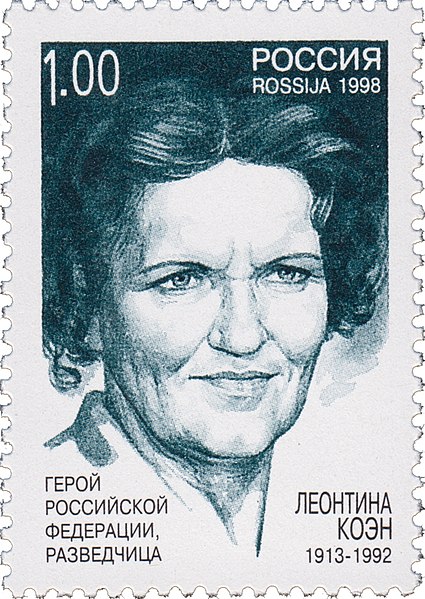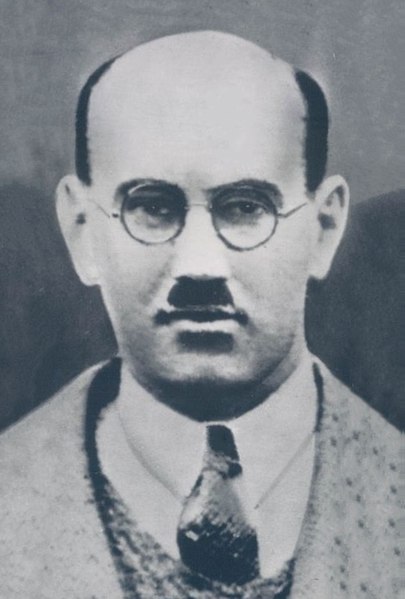Atomic Spy: The Dark Lives of Klaus Fuchs is a 2020 biography of Klaus Fuchs, a so-called atomic spy, by Nancy Thorndike Greenspan. The book was published by Viking Press and received several reviews. Fuchs was a physicist who is best known for passing secrets from the Manhattan Project to the Soviet Union during World War II. The book paints a sympathetic picture of Fuchs, ultimately arguing that his crime was done with good intentions, for "the betterment of mankind". Though several reviews noted their opposition to this conclusion and the sympathy the book shows to Fuchs, it has received mostly positive reviews.
Cover page of the book
Fuchs in 1933
Atomic spies or atom spies were people in the United States, the United Kingdom, and Canada who are known to have illicitly given information about nuclear weapons production or design to the Soviet Union during World War II and the early Cold War. Exactly what was given, and whether everyone on the list gave it, are still matters of some scholarly dispute. In some cases, some of the arrested suspects or government witnesses had given strong testimonies or confessions which they recanted later or said were fabricated. Their work constitutes the most publicly well-known and well-documented case of nuclear espionage in the history of nuclear weapons. At the same time, numerous nuclear scientists wanted to share the information with the world scientific community, but this proposal was firmly quashed by the United States government. It is worth noting that many scientists who worked on the Manhattan Project were deeply conflicted about the ethical implications of their work, and some were actively opposed to the use of nuclear weapons.

Klaus Fuchs, arguably the most important of the identified "atomic spies" for his extensive access to high-level scientific data and his ability to make sense of it through his technical training
Lona Cohen on Russian stamp
Morris Cohen on Russian stamp
Alan Nunn May, University of Cambridge physicist






